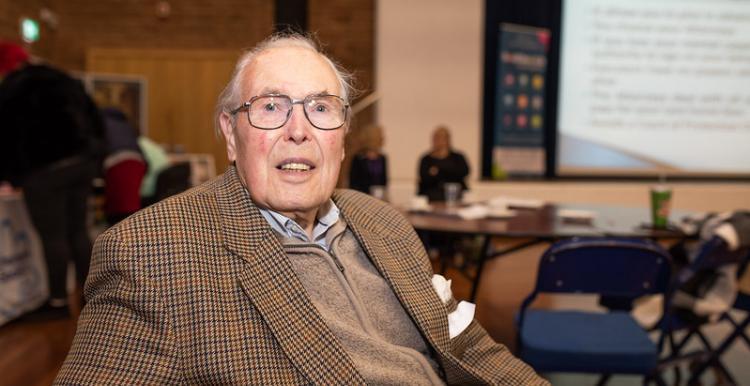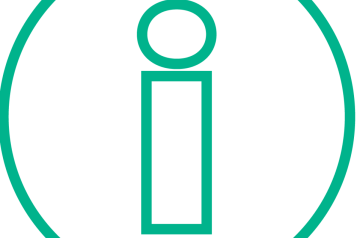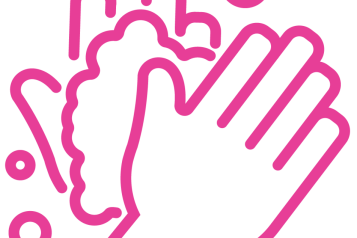Coronavirus: What does shielding mean?

National lockdown
From 1 April people who were identified as clinically extremely vulnerable will no longer be advised to shield. If you fall into that category, you should have received a letter with detailed advice.
To check the latest Government guidance please visit Gov.uk.
Understanding what to do if you are at high risk
What does shielding mean if you are at high risk for COVID-19?
People who are defined as clinically extremely vulnerable are at very high risk of severe illness from COVID-19. People who fall into this category will have been advised to ‘shield’. This word is used to describe how people at high-risk should protect themselves by not leaving their homes and minimising all face-to-face contact.
How do I know if I am clinically extremely vulnerable?
On 15 February, as a result of the introduction of new assessment software, more people were added to the Shielded Patients List (SPL). The software considered a number of factors to identify who was most at risk. Although many people who were added to the list would have already been contacted about vaccination because of their age, 820,000 adults between 19 and 69 years will now be prioritised for a vaccination and asked to book an appointment.
If you have been advised that you are clinically extremely vulnerable this will be because:
- you have one or more conditions that put you at risk of serious illness if you catch COVID-19, or
- your clinician or GP has added you to the Shielded Patient List because, based on their clinical judgement, they deem to you be at higher risk.
If you are in this group, you will have received a letter from the NHS or from your GP telling you this. You may have been advised to shield in the past.
If you want to find out more about the factors that can make you clinically extremely vulnerable, read the Government guidance HERE.
What should I do from 1 April if I have been told I am at high-risk?
Until the social distancing rules are eased more widely, it is important that you continue to keep the number of social interactions that you have low and try to reduce the amount of time you spend in settings where you are unable to maintain social distancing.
Everyone is advised to continue to work from home where possible, but if you cannot work from home you are no longer advised against attending your workplace. Your employer is required to take steps to reduce the risk of exposure to COVID-19 in the workplace and should be able to explain to you the measures they have put in place to keep you safe at work.
The Coronavirus Job Retention Scheme (furlough) has been extended until 30 September as has the Self-Employment Income Support Scheme (SEISS). You may continue to be eligible throughout this period.
From 1 April you will no longer be eligible for Statutory Sick Pay (SSP) or Employment and Support Allowance (ESA) on the basis of being advised to shield.
Clinically extremely vulnerable pupils and students should return to their school or other educational settings.
COVID-19 vaccinations
If you are aged 16 or older, you should already have been offered your first dose of the vaccine. If you have not yet received your first dose, please contact your GP.
For children aged 12 to 15 years, vaccination may be appropriate for those with severe neuro-disabilities. This option should be discussed between parents/guardians and the child’s clinician or GP. For other children aged 15 and under, whilst further research is being done, vaccination is not yet recommended.
What support is available to me?
If you have been advised that you are clinically extremely vulnerable, you may be able to access a range of support including:
Access to support
If you have already registered for priority access to supermarket delivery slots, supermarkets will continue to offer priority access until 21 June.
If you are struggling as a result of Coronavirus please visit the Government website or contact your local council to find out what support is available.
Access to health and care
Please remember that the NHS is open, and we urge you to continue to access all the NHS services that you need. It is likely to be safer for you to use the NHS than to try to manage alone.
If you are concerned about the impact of COVID-19 on your health, speak to your GP, hospital clinician or use NHS 111. Further information on accessing help and support can be found in the Government guidance.
Get help from the NHS Responders
The NHS Responders are still helping people by collecting and delivering food, medications and essential supplies.
- Call 0808 196 3646
- Find out more
Contacting you if this guidance changes in the future
Please make sure your GP has your most up to date contact details, including your home address and, if possible, a personal email address, so that the Government can contact you quickly in the event that the guidance changes in the future.
Staying physically and mentally well
It is important to stay healthy despite shielding and staying in touch with people by phone, post or online can help.
Here are some places that you can go to get support that’s right for you:
-
NHS Responders offer a “Check-in and chat” service (0808 196 3646)
We've also put together some advice on how to look after your mental health during this time.
Frequently asked questions
The following Q&A, based on information provided by the Government, aims to help you get some of the answers you need to know about what shielding means in practice.
What does ‘shielding’ mean?
Shielding is the word used to describe how to protect those at highest risk of severe illness if they catch COVID-19. You can shield yourself following the Government guidance, and shield others by minimising all interaction between yourself and those who are most at risk.
When will I get my vaccination against COVID-19?
Clinically extremely vulnerable adults will get priority access to the vaccination.
You should have been contacted by the NHS with more information on when and how you will be invited to receive the vaccine.
If you have not already had your vaccine, visit the national booking system. You can also call 119 free of charge, anytime between 7am and 11pm seven days a week.
My main carer is unwell – what do I do?
Speak to your carers about back-up plans for your care in case your main carer is unwell or needs to self-isolate.
You should have an alternative list of people who can help you with your care if your main carer becomes unwell. You can also contact your local council, or local Healthwatch, for advice on how to access care.
Can I leave my home if myself or my children are at risk of domestic abuse?
Yes, you may leave your home to escape domestic abuse. Read our article for more information on domestic abuse during the pandemic

